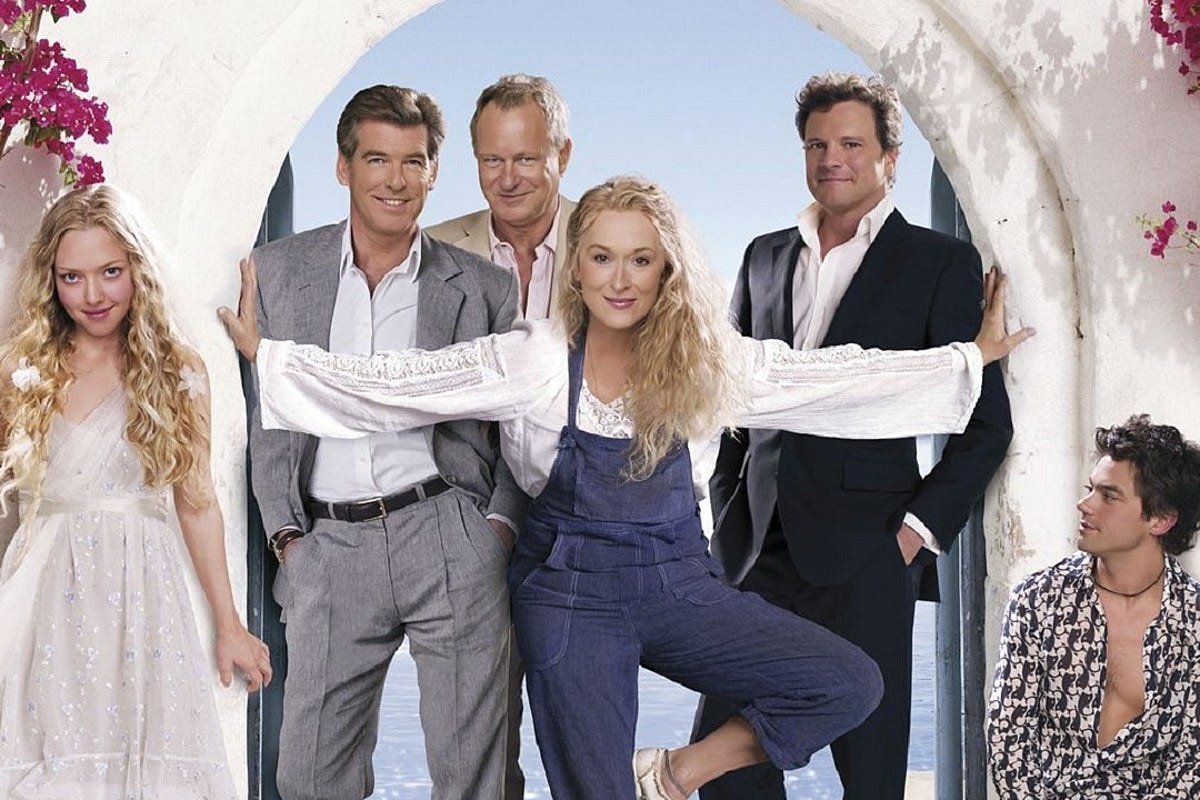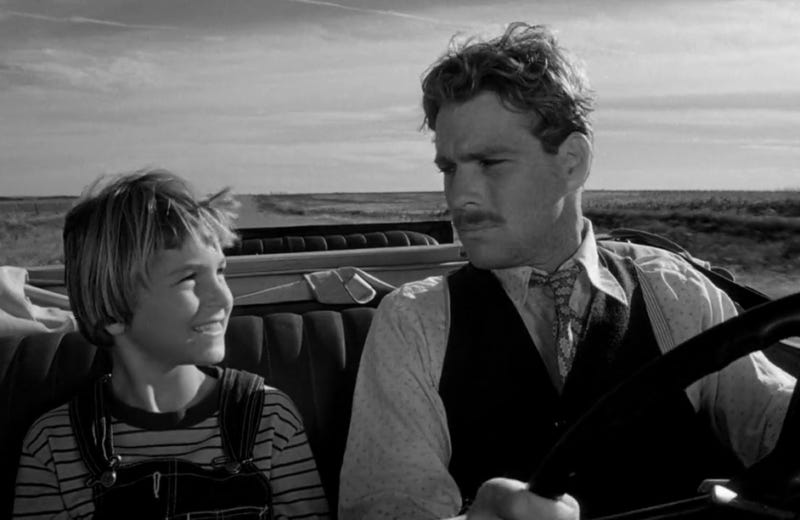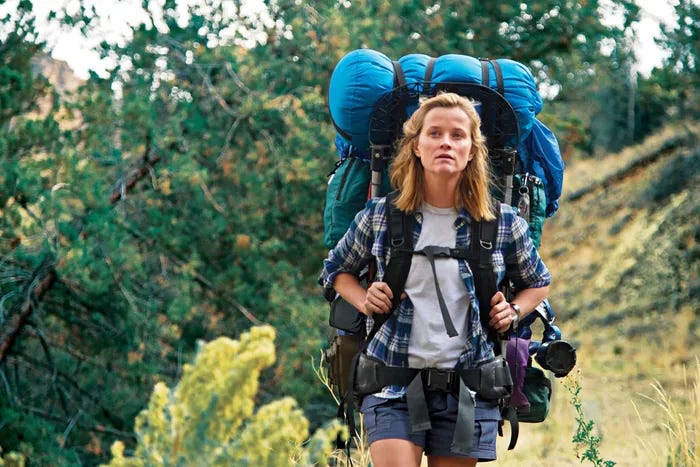Brent and Michael's Favorite Travel Movies
In honor of the Oscars, let's talk film.
In honor of the Oscars, we’re reposting a list of our favorite travel movies!
What is a “travel movie” anyway? In the 2022 Oscars, there are a number of movies set in non-American locations — Belfast and Drive My Car, for example. But these seem more like movies that just happen to be set in places outside of the United States — part of the welcome trend of Hollywood being more receptive to global stories and more diverse points of view.
The Lost Daughter is a bit closer to the mark. It’s the story of a British woman who lives in America and is on holiday on a Greek island. But the film doesn’t really have much to do with her actual travels; it’s more about her feelings toward motherhood.
In the end, the term “travel movie” is pretty vague — so vague that for the purposes of this article, we’re including any damn movie we wanted!
Brent’s Favorite Travel Movies
The Indiana Jones Movies (1981, 1984, 1989, 2008, 2022)
Let’s get one thing out of the way right away: I think Indiana Jones and the Temple of Doom (a) includes a whole bunch of racist tropes, and (b) is also just an objectively terrible movie. Almost nothing about it works, and I think Willie Scott is one of the most annoying characters to ever appear on screen. (I don’t blame Kate Capshaw, the actor; I put all the blame on the director Steven Spielberg and the husband-and-wife screenwriting team.)
Other elements in the rest of the Indiana Jones franchise haven’t aged particularly well either. Even the three other existing movies have a tendency to portray all foreign cultures as “the other” and “exotic” — and the movies’ perspective is always steadfastly that of the conventionally masculine white American male.
That said, I also think most of these movies absolutely embrace a love for travel, and they’re a genuine celebration of the natural and archaeological beauty of planet Earth.
Indiana Jones, the character, also preaches a fairly consistent gospel of Western humility and respect, trying hard to meet foreign cultures on their own terms.
Travel is an adventure. The minute you step foot outside your door, you find yourself at the start of a story. What follows will be a series of unexpected twists, some laughs, occasional danger and intrigue, some puzzles to solve, and — if you’re doing it right — a scene or two of passion and romance.
In other words, travel is an Indiana Jones movie!
For me, these films perfectly capture what travel is all about.
Except Michael and I somehow seem to run across even more insects and snakes.
Mamma Mia! (2008)
A lot of people hate this movie. They say the story is paper-thin, just a ridiculous plot device on which to hang various preexisting ABBA songs, which are themselves just froth and silliness.
These people have completely missed the point of Mamma Mia!
The froth and silliness is the point. ABBA songs are ear candy. The lyrics are angst-y, but they’re too vague to say anything real. They really only exist to rhyme and be clever turns of phrases.
They never take themselves too seriously.
This movie doesn’t take itself too seriously either. Which, ironically, is why I think it’s brilliant. The movie says, defiantly and unapologetically: sometimes it’s okay to be silly and just have fun.
And, of course, the movie captures the beauty of the Greek Islands — and, perhaps, sunny beaches everywhere.
Why do we humans like the beach so much anyway? I say it’s because it offers a bright, carefree respite from the travails of dark, dreary mortal existence. We are inexorably drawn to the very nexus of life: the primordial soup from which we crawled and the amniotic sac from which we burst.
You say I’m taking this movie way too seriously? Maybe so, but I still say this movie captures a truth as timeless and profound as the most serious Best Picture Oscar contender.
Eat, drink, be merry, and watch Meryl and company sing some catchy songs and charm your socks off. Because tomorrow you may die.
Fine. Don’t ascribe any great meaning to Mamma Mia! I’ll still take it any day over the latest pretentious arthouse slog.
P.S. Mamma Mia 2: Here We Go Again had its moments, but it was mostly just going through the motions. Seriously, how do you waste Cher? Although I did love that final scene with the ghost Meryl Streep. Up until then, she had been sorely missed.
Paper Moon (1973) (and Road Trip Movies in General)
I’m a screenwriter, and I’ll now reveal the plot of literally every road trip movie ever made: a character or characters set out on a journey, determined to get somewhere very specific, because they think that destination will solve some big problem, finally making them truly happy.
They struggle to get where they’re going, and eventually they do, but then they discover it wasn’t what they thought at all, and they no longer care very much about the problem they thought was so important before. Meanwhile, somewhere along the way, they realized they want or need something completely different, and the rest of the movie becomes about their trying to get that entirely different thing instead.
This is the plot of Green Book, Apocalypse Now, The Sure Thing, all the Vacation movies, Zombieland, The Guilt Trip, Mad Max: Fury Road, About Schmidt, Rain Man, Midnight Run, and, well, too many other movies to count.
Why is this always the story?
Because road trip movies capture another fundamental truth about travel: when you first set out, you can’t know where you’re going to end up. You think you know, but you’re wrong. Because your journey hasn’t started yet, and something will happen along the way that will completely change where you’re going. You will end up some place other than where you expected, even if it’s only a different psychological place.
But the unexpected things that happen along the way? They're far and away the best part of travel — and life.
Hello! It really is about the journey, not the destination.
I think the best road trip movie of all time is Paper Moon, which is the story of a grifter (Ryan O’Neal) tasked with taking little orphan Addie (Ryan’s real-life daughter, then-nine-year-old Tatum O’Neal) to some relatives across Kansas and Missouri in 1936.
The movie is a comedy, sort of, but it’s set during the Depression — it’s even filmed in black-and-white. Unlike Mamma Mia!, it’s not a “feel good” movie. It’s about desperate people making desperate choices.
Including Addie.
Because she’s only nine years old, this is heartbreaking. Addie is tough-as-nails and smart as a whip, frequently even out-conning the experienced con artists around her.
But because she’s only nine years old, her real agenda is more transparent: she just wants a dad.
Tatum O’Neal is truly extraordinary here — so good she became the youngest person to ever win a competitive Academy Award. She even beat Madeline Kahn in the same movie, who is also at her absolute artistic peak here, playing another very desperate character, “exotic dancer” Trixie Delight. Ryan O’Neal is pitch-perfect too, but he has the unfortunate task of playing straight man to two of the greatest scene-stealers in all of film history.
It’s only a paper moon, the title song says, sailing over a cardboard sea…
But nothing about this movie is fake. The characters may all lie to each other, but this film tells the audience the cold hard truth: we all just want to be loved and accepted for who we are — but sometimes we have to leave home and travel for many miles before we finally realize it.
P.S. The second best road trip movie of all time is Little Miss Sunshine, which tells the exact same story.
Wild (2014). But Not Eat, Pray, Love (2010)
For a long time, “travel movies” were mostly romcoms like Lost in Tuscany (not great, but fun), or road trip movies like the ones I mentioned above.
But there’s been a recent wave of movies that celebrate travel as a journey of self-discovery.
How can you tell the difference? Travel self-discovery movies include flashbacks to the character’s life before travel.
When I read Eat, Pray, Love, I thought, “Well, it’s readable, and it has its moments, but it sure is a lot of navel-gazing. And would someone please explain to me how the hell she financed this thing? She really got a publisher to pay for her to just travel around for a year, and then write about it? Must be nice!”
Eat, Pray, Love had Julia Roberts, who is always appealing, but it also had all of the book’s flaws. And I’ve never been a fan of Ryan Murphy, the hack-y TV producer who wrote and directed the movie.
Meanwhile, I absolutely loved the memoir Wild: From Lost to Found on the Pacific Crest Trail by Cheryl Strayed, which the movie Wild is based on. As in: This is the best travel memoir I’ve ever read! I did wonder: So much of this book is internal, how are they going to make it into a movie?
But screenwriter Nick Hornby — one of my favorite novelists, who wrote About a Boy, High Fidelity, and Juliet, Naked — absolutely cracks the nut.
Why do I think this movie works? Basically, it breaks all the travel movie tropes. It doesn’t show the “romance” of travel.
On the contrary!
Cheryl is a “difficult” character. She’s a former sex and heroin addict who’s never dealt with her shit.
Once she sets out, everything goes wrong, but definitely not in a “meet cute” kind of way. Most of her problems are also entirely her own fault, because she was completely unprepared for her journey.
At the same time, the movie is the perfect melding of character and story. Strayed’s physical struggle on the Pacific Coast Trail is the literal embodiment of the emotional journey she’s on as she tries to make sense of the tragedies and mistakes of her past.
Another truth about travel is that sometimes we’re unprepared for the things that happen to us. Our only choice is to change — and fast — or circumstances will basically destroy us.
It’s a more brutal travel truth than the one in Mamma Mia! But I think it’s another important one.
P.S. Kudos to Reese Witherspoon, who got this movie made. Years ago, she said, “There aren’t very many good roles for women in Hollywood.” And then she proceeded to single-handedly change that!







